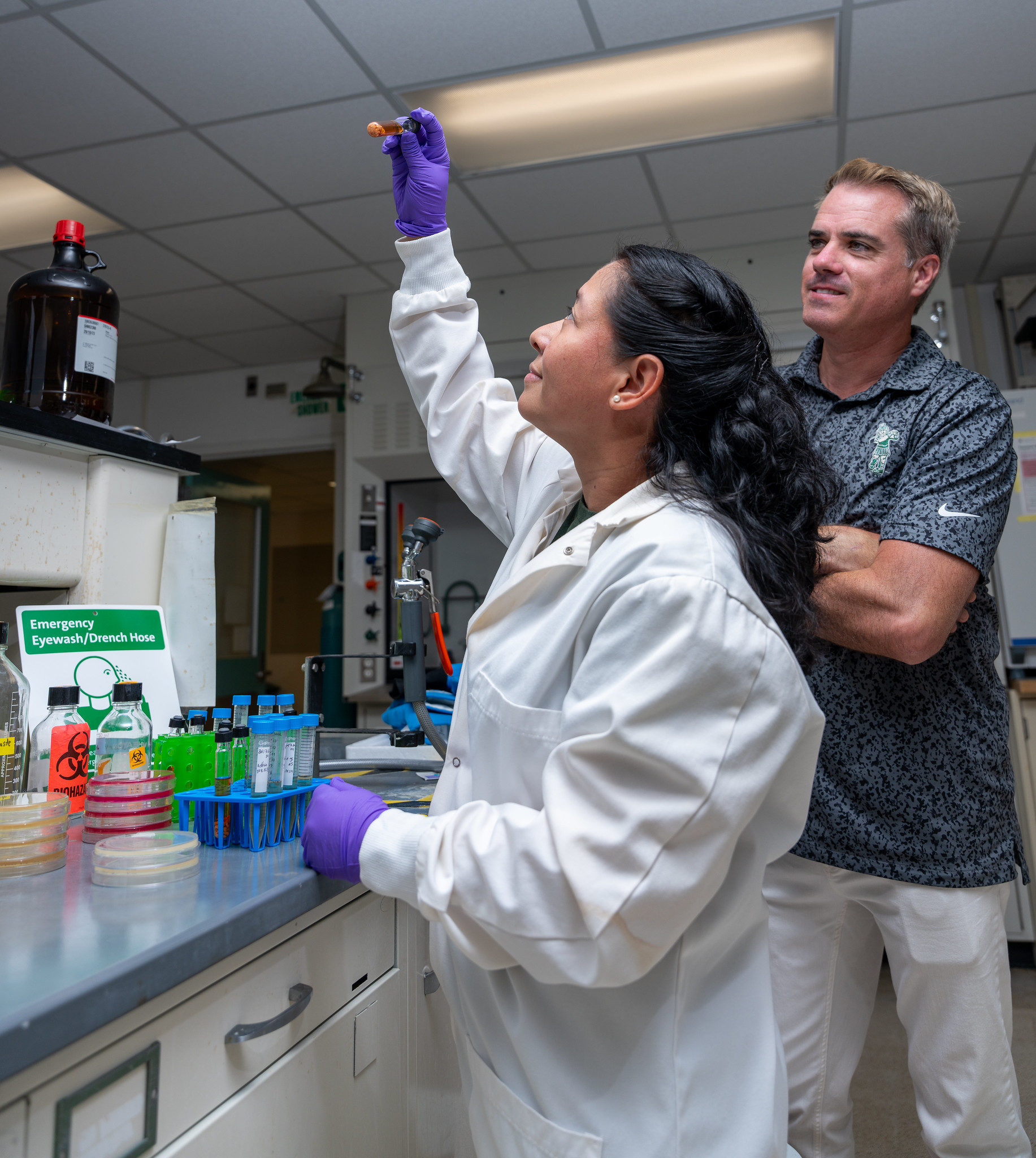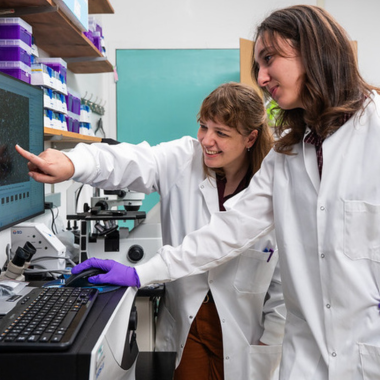'Rewriting the book on bile acids,' Quinn receives NIH award
Article Highlights
- Robert Quinn, an associate professor in the College of Natural Science, received a $2.5 million award from the NIH that builds on recent microbiome breakthroughs.
- The Quinn lab will continue to investigate the role that bile acids play in human health, specifically through a mouse model that exhibits gut inflammation.
- “These molecules are so new and exciting it’s tough to know where to start. Bile acids impact all aspects of our gastrointestinal health."
If you’re ever feeling alone, don’t forget you’re carrying around little friends with you — trillions of microbial cells that impact our health from head-to-toe.
Supported by a new $2.5 million, five-year grant from the National Institutes of Health, or NIH, Michigan State researcher Robert Quinn is continuing his pioneering work into one of the most dynamic and diverse microbial ecosystems, the gut microbiome.

“The microbiome is essentially another organ. The thousands of species of bacteria living inside us help digest our food, keep away pathogens, and can even talk to us through small molecules such as bile acids,” Quinn said, who is an associate professor in the College of Natural Science’s Department of Biochemistry and Molecular Biology.
The latest NIH award will further the Quinn lab’s investigation of bile acids and build off a series of recent high-profile discoveries involving this crucial family of molecules — work with exciting potential for human health.
Over nearly two centuries of biochemistry, bile acids have become some of the most well-studied molecules in our gut, facilitating digestion and absorption.
Researchers long knew that bile acids were modified, or “conjugated,” in our livers by the addition of two specific amino acids.
However, our understanding of bile acids was turned on its head by Quinn’s team when it was demonstrated that gut microbes could in fact conjugate them as well, adding entirely new amino acids into the mix.
Next, their lab showed that these microbially conjugated bile acids, or MCBAs, were created by an enzyme that was best known for breaking them down.
“The enzyme responsible for creating MCBAs, called bile salt hydrolase, has been studied intensely since the 1960s. Our finding that it has reverse activity was a big surprise to the field,” Quinn explained.
“Between the initial discovery of MCBAs, and now the reverse activity of this enzyme, we are rewriting the book on bile acids.”
Now, with the support of this latest NIH award, Quinn will further explore how MCBAs are created by the microbiome, and how they impact our health.

Of special interest are the ways MCBAs influence gut inflammation.
Researchers in the Quinn lab and other scientists have previously shown that MCBAs interact with bile acid receptors that influence the response of cells to gut inflammation.
Knowing we possess significant quantities of MCBAs in our bodies, the team believes these molecules play an important but understudied role in the chemical dialogue occurring between the microbiome and the body-at-large.
To investigate these connections, the team will utilize a mouse model that exhibits gut inflammation.
By comparing mice with normal levels of MCBAs to those without, the Quinn lab will work to discover how these new molecules contribute to the overall health of an organism. They’ll also investigate how gut disease outcomes depend on the unique amino acids being conjugated.
Quinn’s research is paving the way for a better understanding of how the microbiome uses small molecules to manipulate our health. There is an incredible chemical diversity found in the gut microbiome, but we have only begun to characterize it, Quinn said.
Bile acid metabolism is the target of a wide variety of drugs, and MCBAs present an especially exciting frontier for biochemists such as Quinn with hopes for improved, future therapeutics.
“These molecules are so new and exciting it’s tough to know where to start. Bile acids impact all aspects of our gastrointestinal health. Invariably, MCBAs will as well,” Quinn said.
“This funding from the NIH will allow us to identify how.”



